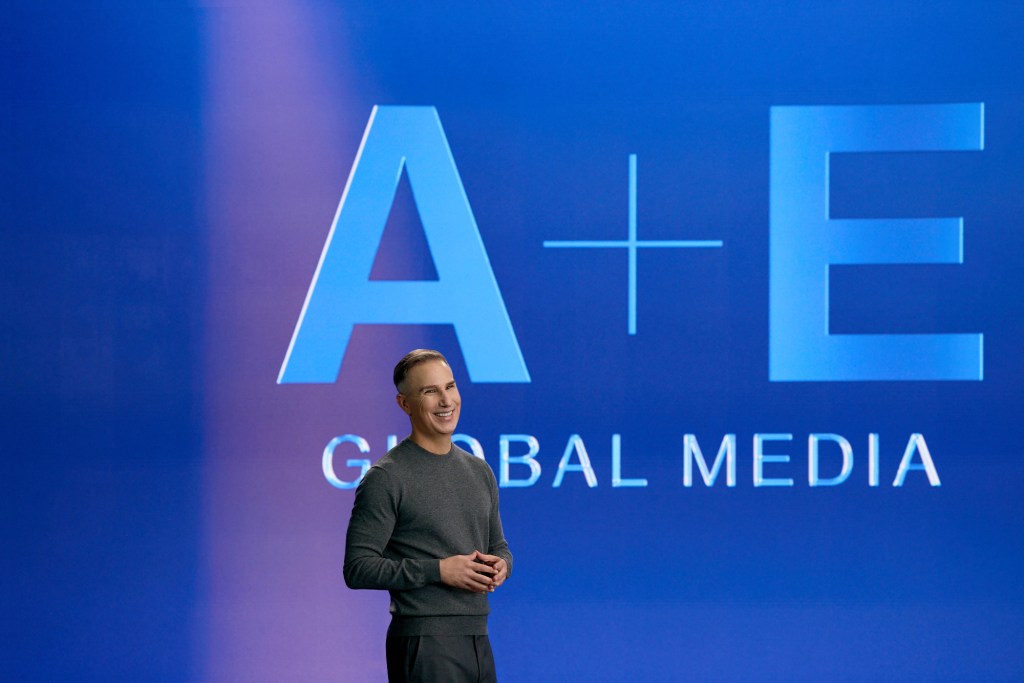A+E Global Media, parent of long-established cable networks A&E, History and Lifetime, is exploring a potential sale.
The company, a joint venture of Disney and Hearst which rebranded earlier this year from A+E Networks, has retained Wells Fargo to help it look at various strategic options, a person familiar with the situation told Deadline. An outright sale may not end up being the ultimate plan, and a transaction possibly might not occur at all if the terms don’t turn out to be favorable.
The initiative comes as no major surprise, given that cable networks are experiencing steady declines in viewing and ad spending. While they still throw off significant cash, the networks are being separated from their corporate parents across the media industry. Comcast is spinning out a new company called Versant, a collection of NBCUniversal cable assets. Warner Bros. Discovery last month unveiled plans to separate its cable channels from its studio and streaming portfolio.
Lionsgate Studios recently split from Starz.
Variety had the first report of the potential sale. A+E, Disney and Hearst declined to comment.
A&E Global is the “third tier” and most significant equity investment of Disney’s linear television business with results noted as “equity in the income of investees” in the company’s consolidated income statements. The media giant’s linear assets include television stations and a stable of domestic and international cable networks from Disney Channel to Freeform to National Geographic.
Disney has in recent years been assessing the value of its linear TV networks. CEO Bob Iger in fact was one of the first to publicly float the possibility that linear was “non-core,” before pulling back on a tentative plan to sell off TV assets after execs concluded they had value as complements to streaming. The company also took flagship sports network ESPN and made it the cornerstone of a new sports segment.
A&E offers entertainment programming including original reality and docs; History has original unscripted series and event-driven specials; Lifetime offers programming targeted to women. Each had about 58 million domestic subscribers as of September 2024, the end of Disney’s fiscal year, per Nielsen estimates. A+E Global Media has programming available in approximately 200 countries and territories.
Cord cutting and a shift to streaming that accelerated during Covid have been steadily shrinking the audience for linear.
Amid A&E declines, Disney reported a plunge in equity in the income of investees to $207 million from $575 in the latest fiscal year. That said, linear networks continue to throw off significant cash with a sheer tonnage of content that continues to support the overall ecosystem. Media CEOs have said that spinning out linear will set the networks on a path to consolidate, potentially forming larger groups that will be better able to manage the assets as they decline.
Comcast expects to spin out Versant, led by Mark Lazarus, by year end with networks including MSNBC, CNBC, USA Network, Oxygen, E!, Syfy and Golf Channel. Only Bravo is remaining in the NBCU fold.
“As a standalone company with these outstanding assets, we will be better positioned to serve our audiences and drive shareholder returns in this incredibly dynamic media environment across news, sports and entertainment,” Lazarus has said. “We see a real opportunity to invest and build additional scale and I’m excited about the growth opportunities this transition will unlock.”
Warner Bros. Discovery split its businesses internally into two separate operating divisions early this year and says it hopes for a formal separation by mid-2026. Current CFO Gunnar Wiedenfels will run the new WBD Global Networks including CNN, TNT Sports U.S. and Discovery along with free-to-air channels across Europe.
“By operating as two distinct and optimized companies in the future, we are empowering these iconic brands with the sharper focus and strategic flexibility they need to compete most effectively in today’s evolving media landscape,” said WBD CEO David Zaslav.
There’s been speculation that these two large portfolios could merge. Meanwhile, Starz CEO Jeff Hirsch has said the split from Lionsgate presents significant opportunities to bring together “brands that are focused on women and underrepresented audiences,” which are Starz core viewers.
